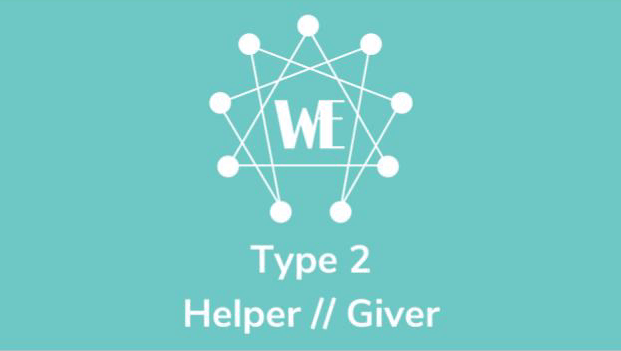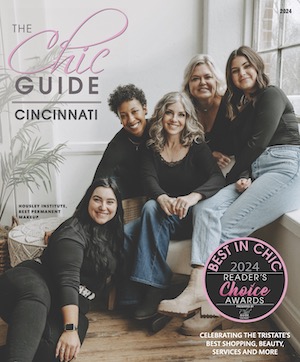This week, learn more about the Enneagram Type Two – the Helper/Giver. [Remember – the Enneagram is based on motivation, not behavior. This is why it is important to have a holistic understanding of all the types before determining which type you lead with. If you want more information on what the Enneagram is, check out the first post of this series.]
Enneagram Type Twos are typically known as Helpers or Givers. Their primary motivation is to be needed. To be needed, to a Two, is to be loved. They have the amazing ability to sense the emotions of others, assess their needs, and serve accordingly. When self-aware, individuals leading with Type Two are dependable, generous, empathetic, diplomatic, and happy. They are wonderful friends- often equipped to lift others and champion their people. Twos will often say yes to requests or be the first to volunteer because of their desire to be needed; thus, boundaries are a great area of growth for a Type Two.
In shadow, pride gets in their way, creating the belief that because they understand the needs of others, they are indispensable and often know what is right for others before others know what is right for themselves. This creates issues by crossing other’s boundaries, causing them to seem pushy or controlling. Twos can also be manipulative, using acts of service as attempts to receive back what they want or need. The manipulative behavior is usually subconscious and not with malintent. They do this because they simply do not know how to ask for what they need, so instead they give, hoping to receive in return. Because most humans are not natural mind-readers, this can often leave the Two disappointed and hurt when their desired outcome is not reached. Twos do this because they have a tendency to perceive themselves as unworthy of love or having their own needs met, just as they are, and without doing something in exchange.
In childhood, the Twos possibly grew up not have had a basic need met – typically an emotional need, such as recognition, focused care, or love. These children may not have felt unconditional love (even if the parents did their best), and then developed the belief that they are unlovable, and that the only way to receive love is to be the opposite of needy: helpful and giving. This belief was usually affirmed because their efforts to help were typically acknowledged and met with appreciation by the ones who mattered so deeply to the young Two.
Twos are members of the Heart Center of Intelligence (aka the Heart Triad), meaning their responses and decision making comes more emotionally to them (as opposed to instinctually [Body] or thoughtfully [Head]).They are of the Dependent stance (as opposed to the Aggressive or Withdrawing stances). In stress, Twos lean into the Type Eight (Challenger/Boss) and can become aggressive and angry; this can be used productively when leading, exercising boundaries, or standing up for themselves – if they are aware of and can control their emotional state. In support or growth, Twos lean into the Four (Romantic/Individualist) and can shift from external validation to internal, by seeing and loving the unique aspects about themselves. They become able to articulate their needs accordingly. Wings of Twos are either the One (Perfectionist/Reformer) or the Three (Achiever/Performer). (Note – A Wing is when the primary Type might often display features of one of the two Types (or both) surrounding the primary Type on the Enneagram circle. These two types are referred to as a “wing.”)
Exercising compassion toward a Type Two: remember this – their need to help and give has everything to do with their innate need for love. Relationships mean the world to Type Twos and they will do almost anything and repress a lot of pain, to keep relationships going. If you have loved ones who are Twos, please show them love when they are not expecting it. Pay attention to if they are giving too much, not saying “no” enough, or seem hurt or resentful because their needs are not being met. The best thing you can do is encourage them to develop boundaries, ask them what they want or need, and let them know that it is ok to say no – to you or others that are asking too much of them. Remind them of their birthright of innate worthiness. Give them a big hug (if it is safe to do so) and receive what they have to give with so much gratitude and respect – especially when it is coming purely from their gift of empathy and love. Twos make the most amazing friends. Do not take advantage of them. Do make sure they know they are loved too.
Common occupations of Enneagram 2s include (but are not limited to) doctors, nurses, teachers, caregivers, hospice workers, counselors, religious leaders, humanitarians, social workers, homemakers, customer service, sales, non-profit work, and HR.
To the Two folks: You are worthy of having your needs met. You are worthy of love, just as you are.
Remember – the beauty of the Enneagram is the universal discovery that “not everyone thinks the way I do!” This is where the seeds of compassion for self and others are planted.
In next week’s Cincy Chic edition, we will explore the Enneagram Type 3, the Performer/Achiever.
A special gift for you – inspired by Type Twos:
Here is a Type Two daily mantra and Pilates workout my friend Jennifer Lynn of Fit Philosophie and I created that is inspired by Enneagram type Twos but is for anyone who loves to move and is able to workout at a moderately paced level. Thanks to Crunchmaster Crackers and Wise Wellness Guild for sponsoring this special feature!
If you find yourself wanting more information about the Enneagram, consider taking my online introductory course which will give you a more in depth overview, and provide a path to help you discover your type!
Whitney Ellison is a thought leader and coach of the Enneagram and Quantum Energy. Learn more about her by visiting her website, wellisonenterprises.com and following her @wellisonenterprises on Instagram where you can find all of her Enneagram series interviews and other comings and goings.


